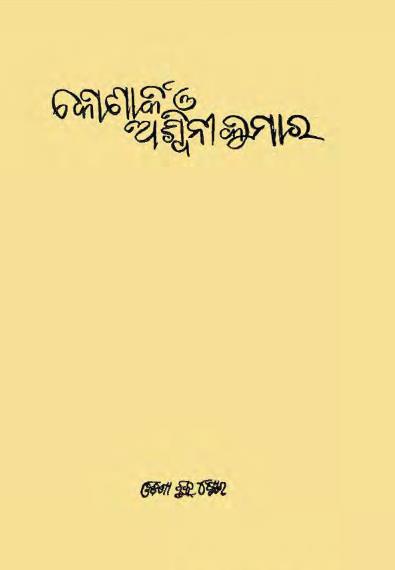Janaki Ballabh Mohanty an eminent Odia writer, offers a profound narrative in his essay Konark O Aswinikumar published in 1966. This essay not only reflects Mohanty’s literary prowess but also encapsulates the cultural and artistic heritage of Odisha, particularly focusing on the renowned Konark Sun Temple and the mythological figure of Aswinikumar.
The Konark Sun Temple, a UNESCO World Heritage Site, stands as a testament to the rich architectural genius of the 13th century. Mohanty delves into the grandeur of this temple, which was built by King Narasimhadeva I of the Eastern Ganga dynasty. His description goes beyond mere architectural details; it is imbued with a sense of reverence for the spiritual and cultural significance of the temple. He vividly portrays the intricate carvings of the temple, which depict various aspects of life— from celestial beings to everyday activities— showcasing the skill and creativity of the artisans of that era.
In Konark O Aswinikumar Mohanty highlights the temple’s alignment with the sun’s trajectory, symbolizing the harmony between nature and human creation. The sun, depicted as a divine entity in many cultures, takes center stage in this narrative. Mohanty’s exploration of the temple’s design, dedicated to Surya, the sun god, serves as a reflection on how ancient civilizations revered natural elements and their influences on daily life.
Aswinikumar, the twin deities of medicine and health in Hindu mythology, seamlessly blend into Mohanty’s narrative, establishing a connection between the artistic brilliance of Konark and mythological narratives that describe the divine forces influencing human life. These twin gods not only represent the healing aspect but are also symbolic of duality, balance, and harmony—concepts that resonate deeply in both the cultural ethos of Odisha and the architectural narrative of Konark.
Mohanty draws parallels between the mythical qualities of Aswinikumar and the architectural wisdom evident in the temple. He articulates how the architectural marvel of Konark acts as a conduit for divine energy, much like the healing powers attributed to the Aswinikumar. This metaphorical linking of the physical and metaphysical adds a profound layer to the essay, allowing readers to contemplate the interconnections between architecture, mythology, and spirituality.
Through Konark O Aswinikumar Mohanty not only preserves the socio-cultural history of Odisha but also emphasizes the importance of understanding one’s roots. The essay encourages a deeper appreciation of Odia heritage, the intrinsic bond between mythology and architecture, and how these elements continue to influence contemporary Odia identity.
In conclusion, Janaki Ballabh Mohanty’s essay is a significant contribution to the body of Odia literature. It serves as an evocative reminder of the importance of heritage and mythology in shaping cultural narratives. As readers navigate Mohanty’s introspective journey through the echoes of Konark and the essence of Aswinikumar, they are invited to reflect on the enduring legacy of their roots, urging them to embrace the rich tapestry of history that defines Odisha today.
Books Info
| Books name | Konark O Aswinikumar/କୋଣାର୍କ ଓ ଅସ୍ବିନୀକୁମାର |
| Author | Janaki Ballabh Mohanty |
| No Of pages | 46 |
| Publisher | Sri Gobinda Chandra Patra |
| Publication | 1966 |
| Printed At | NA |
| Distributor | NA |

